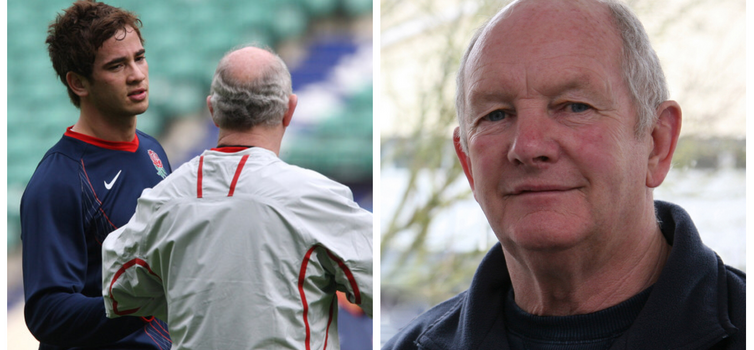Brian Ashton: What is the purpose of an Academy?

As RFU National Academy Manager, Brian Ashton helped develop players like Danny Cipriani
Written by Brian Ashton — June 4, 2019
WHAT is the purpose of an Academy? The answer I usually get, across a variety of sports, is to prepare players for the first team of that particular organisation.
To be honest, that has always struck me as a bit of a cop-out and it doesn’t inspire me at all. I think Academies have a bigger purpose than that. They are full of young people and it’s the development of the young person as much as the player that’s really important.
That doesn’t necessarily mean that they go on to play for any particular first team. It’s got a wider reach and a broader perspective. The objective and vision has to be something really impactful, that really stands out and is different.
When I was at the RFU National Academy (2002 to 2005), I talked to the players and they came up with an objective themselves - ‘to produce game-changing players’.
I really liked that and I think Academies should ultimately be about changing the way that the game is played. I’ve always found that young players, given the opportunity, will surprise you.
The National Academy became a laboratory of ideas, helping us to develop these game-changing players. We appointed a mental skills coach, Gazing Performance. We used Malcolm Arnold, Colin Jackson’s sprint coach, to teach the players how to run both with and without the ball.
Kate Howey, now Head Coach of the World Class Performance Programme for Great Britain Judo, came in to work on body management. Jess Thirlby, the Head Coach of the England Netball team, taught the players about advanced decision making, which meant playing the ball into space and the player receiving arriving into that space, and Paul Tisdale, the former manager of MK Dons, worked with us on 360-degree vision and awareness.
I’ve been quite surprised and excited about the work that some of the football Academies are doing when I visit them as part of my coach mentoring role with the Premier League. I think there has been a sea change in terms of the way players are now developed and coached.
There has been a realisation that the players should be more engaged than they have been in the past, and that it should be more question than tell.
This varies a lot between clubs though. At some, the Academy has a bit of autonomy, so it can develop itself in the way it wants, but many seem to have to fit in with the philosophy of the first team.
That’s a bit of a tricky one, because the shelf life of the average first-team manager is about a year and a half to two years, so if you’re an Under-14 you’re asked to play one way, then two years later if there’s a change of manager you’re asked to play another way, and so on and so forth.
It seems logical to me that the Academy should be teaching and developing players to embrace and play the game in any way and should actually be leading change in the way the game is played. It comes back to that vision of an Academy changing the way the game is played.
At the heart of it all is developing young people to be the best they can be; or actually playing a part in it, because there are four stakeholders in this - the club, the school. the parents and the player - and they all have the be aligned to make sure this works.






-1.png)





